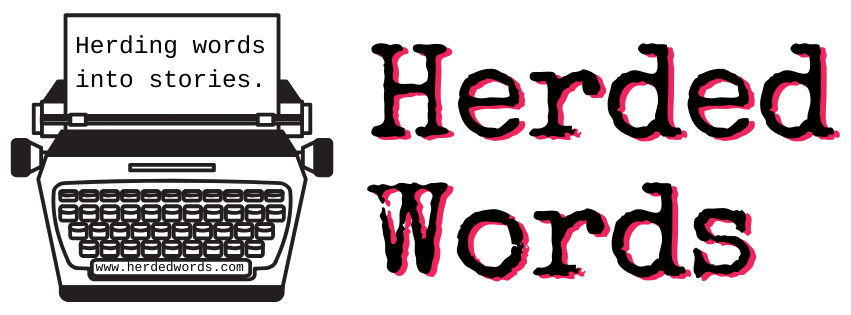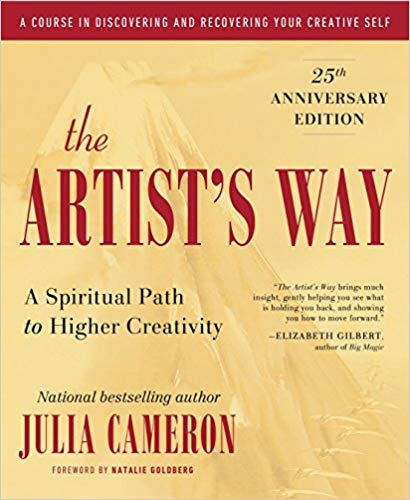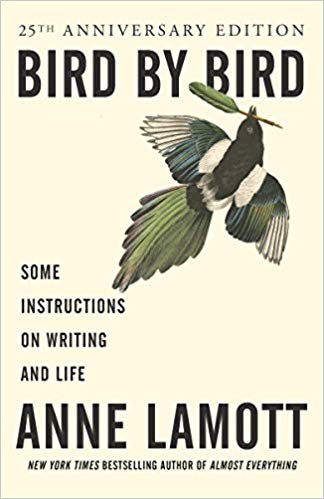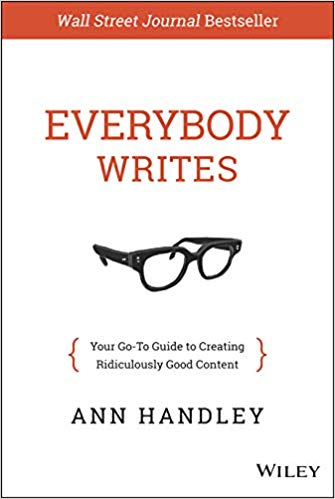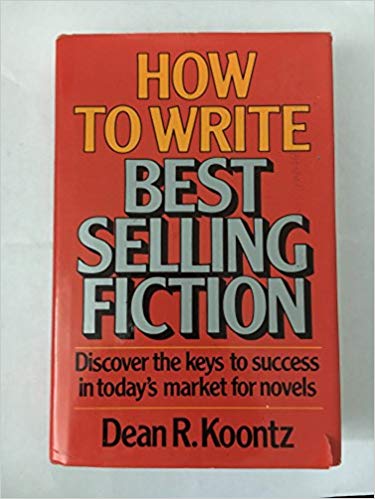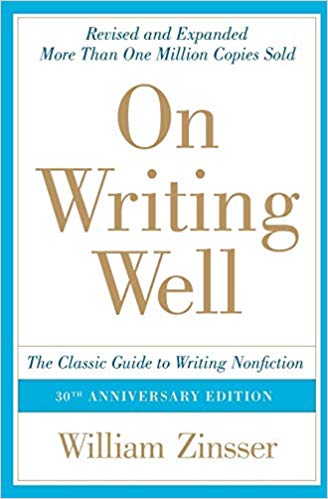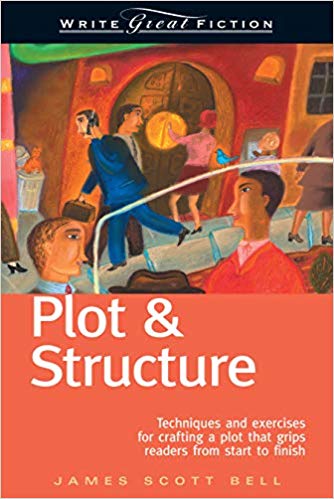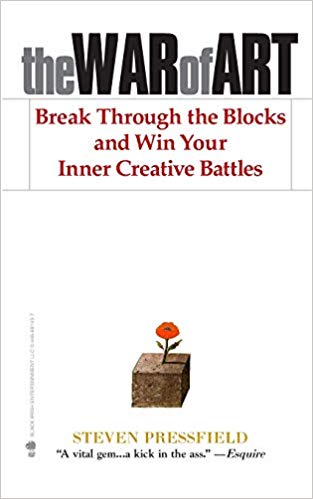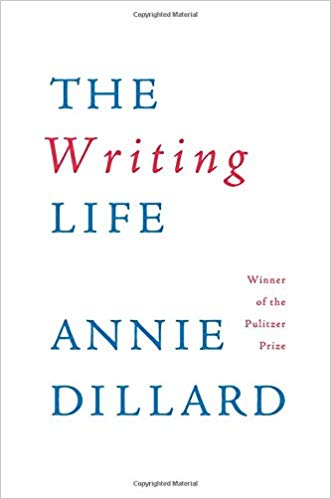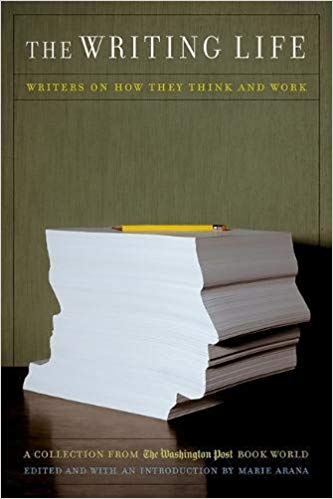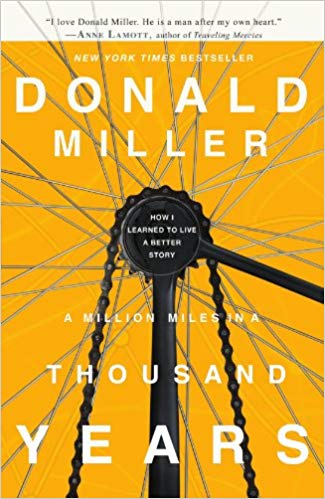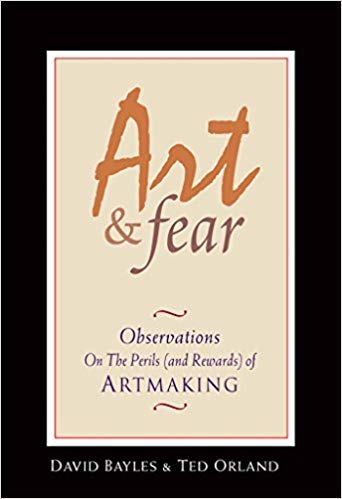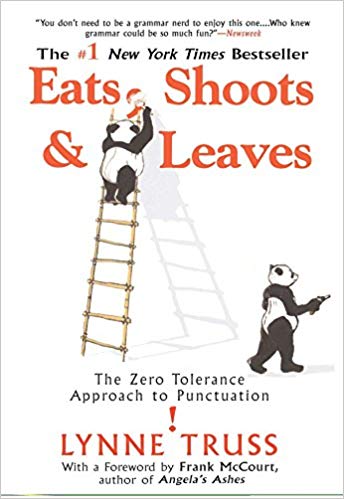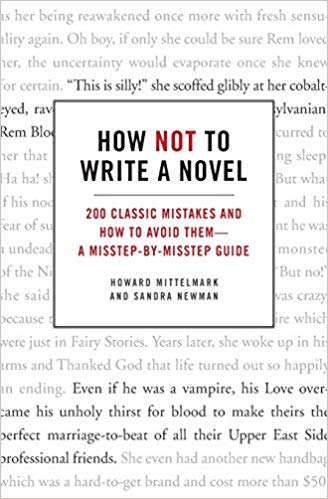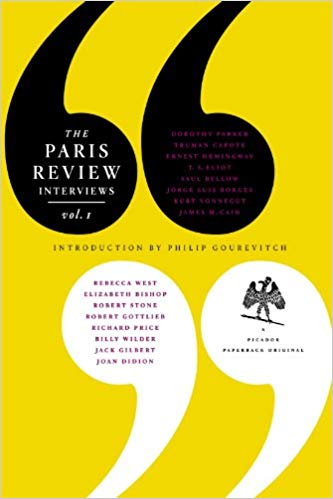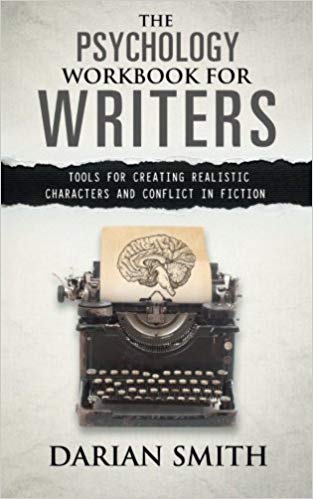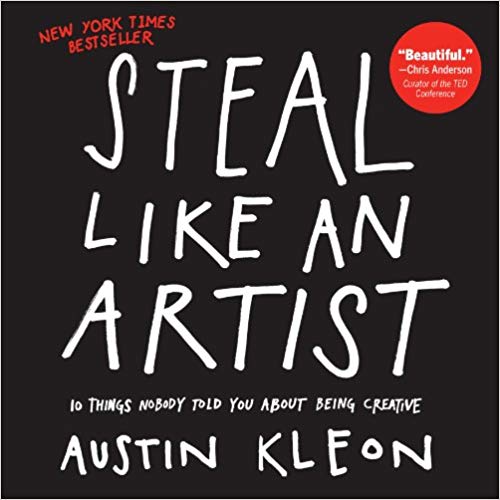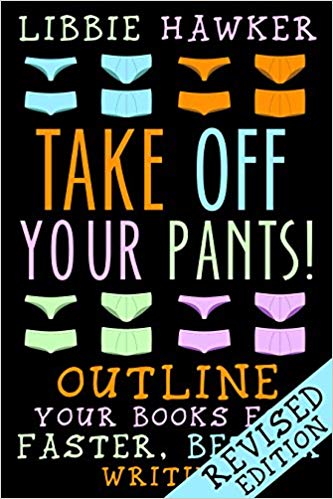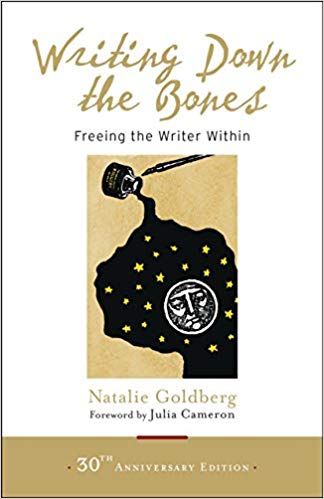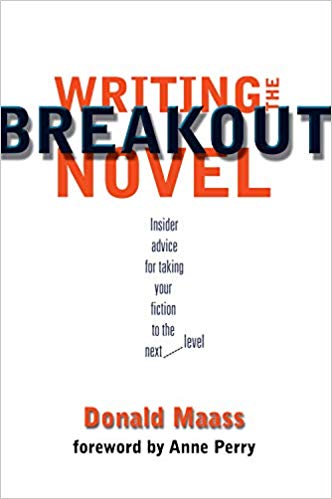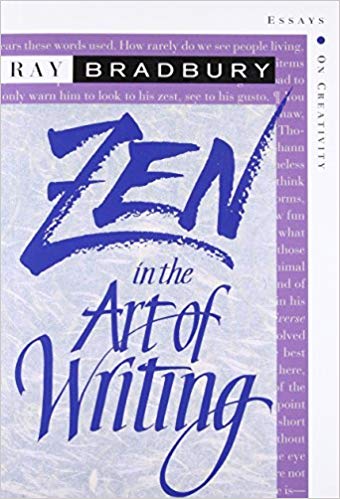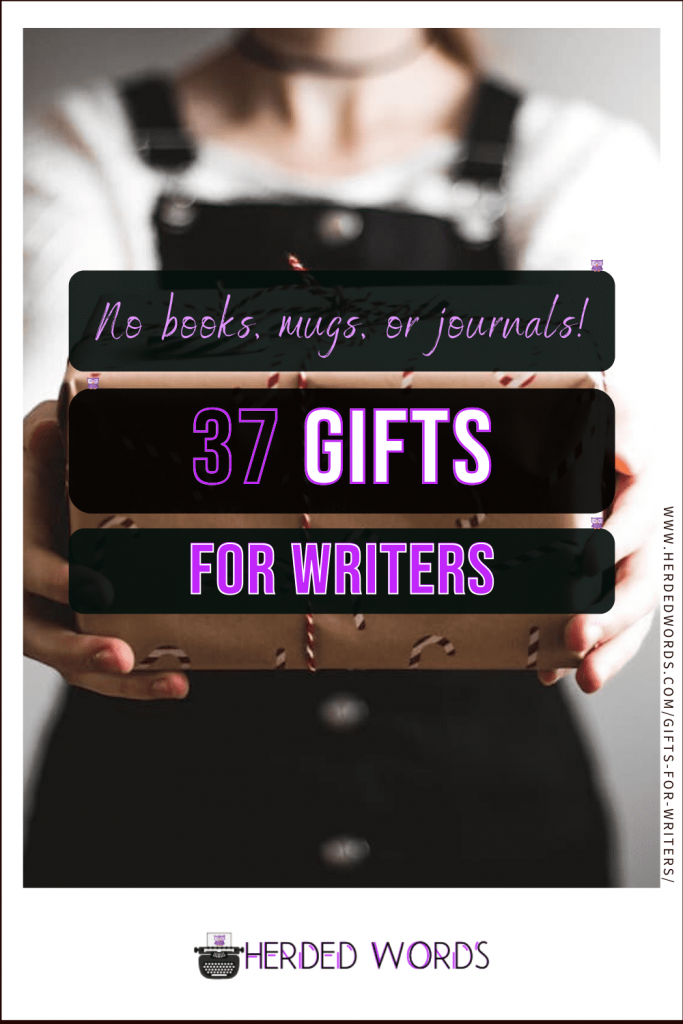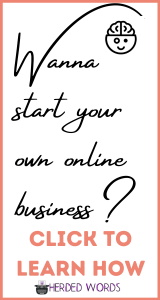
Herdedwords.com uses affiliate links. This means we receive a commission on the sale of certain items. This is at NO additional cost to you. Visit the policies page to learn more.
Writing books are a valuable tool in your learning arsenal. Read them once, highlight them like textbooks, come back to them later.
The best writing books are like old friends, comfortable to curl up with. They understand you in a way only another writer can!
Books are recommended in alphabetical (by title) order – no favoritism here! Let’s dive right in.
Table of Contents
The Top 10 Writing Books
I’m not sure if these are actually the best writing books, but they’re certainly the most frequently recommended. You may have already read some (or all) of them.
These are the classics: they’re as close to required reading as you’re going to find. They’re recommended regularly and there’s a good chance that any writers you meet in the future will have read some (if not all) of them.
THE ARTIST’S WAY
Author: Julia Cameron
Originally Published: 1992
The Artist’s Way inspires readers to embark on a creative journey and find a deeper connection to process and purpose.
Julia Cameron’s novel approach guides readers in uncovering problems areas and pressure points that may be restricting their creative flow and offers techniques to free up any areas where they might be stuck, opening up opportunities for self-growth and self-discovery.
Reviews
I’ve owned this book for more years than I care to admit and never read it. I’ve picked it up a couple of times but, well, it just doesn’t resonate with me.
After looking for other reviews, I’ve come across a lot who say to just get past the ‘woo-woo’ (and God references) because it’s a great book. Perhaps it’s time for me to try this book again…
Check out what writers who’ve actually read the book have to say:
The books have so much coddling and soothing and smoothing of the fragile reader that the end result is a condescension that makes me (quite literally) hurl the volumes across the room.
– This Off Beat Life
When I finally gave the The Artist’s Way a chance, more than a decade later, it (shockingly) lived up to the hype.
– Well and Good
There were a lot of inspiring quotes and ideas through the whole book. I have pages and pages written out that I have saved to go back to when I need them.
– Dead Kittie
BIRD BY BIRD
Author: Anne Lamott
Originally Published: 1994
Anne Lamott offers a step-by-step guide on how to write and on how to manage the writer’s life.
From “Getting Started,’ with “Short Assignments,” through “Shitty First Drafts,” “Character,” “Plot,” “Dialogue.” all the way from “False Starts” to “How Do You Know When You’re Done?” Lamott encourages, instructs, and inspires. She discusses “Writers Block,” “Writing Groups,” and “Publication.”
Bracingly honest, she is also one of the funniest people alive.
Reviews
If you’ve read any writing book, you’ve read all the writing books. Except, you haven’t. BIRD BY BIRD isn’t revolutionary, it contains no giant AH HA! moments. Instead, BIRD BY BIRD offers occasional gems worth further considering.
BIRD BY BIRD is an easy, entertaining, informative read. Don’t take just my word for it, check out what other writers have to say:
I loved this book, even though it’s not at all what I expected when I picked it up. [It’s more] of a memoir than an instructional guide.
– Diana Urban
Well, this book did what I thought was the impossible for me: I fell even more in love with writing.
– Whisked Away by Words
EVERYBODY WRITES
Author: Ann Handley
Originally Published: 2014
In EVERYBODY WRITES, top marketing veteran Ann Handley gives expert guidance and insight into the process and strategy of content creation, production and publishing, with actionable how-to advice designed to get results.
Reviews
EVERYBODY WRITES is not a writing book for fiction. However, it’s still a valuable read for any aspiring author.
Being an author is about more than just writing your novel. You’ll also need to write queries, emails, and other communication. You may also manage your own author website content.
Don’t take just my word for it, check out what other writers have to say:
Whether this is all new to you or you’ve been at it for years, Everybody Writes is your go-to guide for writing well in the digital age.
– Kuno Creative
Handley advocates that as writers, we can always improve and evolve, so this book isn’t one to be flicked through once, and then left at the back of the shelf; it’s a book you can constantly refer back to.
– Articulate Marketing
HOW TO WRITE BEST SELLING FICTION
Author: Dean Koontz
Originally Published: 1981
Tells would-be novelists about the fiction market, offers advice on grammar, style, character development, and plot, and explains how to deal with agents and editors
Reviews
This book is not easy to find. At the time of this writing, the cheapest copy available on Amazon was over $300. I got lucky and found my copy at a used book sale.
It’s old. It’s never been republished or updated. But it’s awesome. Even the parts that are clearly out of date are still worth reading. If you can get a copy of this book, do it!
Don’t take just my word for it, check out what other writers have to say:
It is one of the best writing books I have read.
– Gary David Gillen
I discovered it [a formula/strucutre] decades ago in How to Write Bestselling Fiction by Dean Koontz, and at the risk of hyperbole, it changed my life.
– Story Fix
ON WRITING
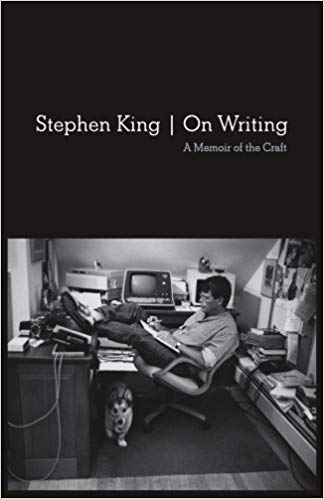
Author: Stephen King
Originally Published: 2000
Immensely helpful and illuminating to any aspiring writer, this special edition of Stephen King’s critically lauded, million-copy bestseller shares the experiences, habits, and convictions that have shaped him and his work.
Reviews
Let me tell you a little secret: I’m not a fan of this book. Shh. Don’t tell anyone!
There is great and valuable advice provided in the book. BUT, I also feel there are large sections of ‘do as I say, not as I do.’ Furthermore, at times I felt like I was being condescended to.
I’m definitely in the minority, though. This is a wildly popular writing book with stellar reviews.
Don’t take just my word for it, check out what other writers have to say:
Stephen King’s On Writing is probably the most comprehensive and practical guide to the craft an aspiring writer could hope to pick up.
– The Inkline
Not a fan of Stephen King’s writing, except for this book, which is the best book on writing–ever.
– Josh Steimle
ON WRITING WELL
Author: William Zinsser
Originally Published: 1976
On Writing Well is a book for everybody who wants to learn how to write or who needs to do some writing to get through the day, as almost everybody does in the age of e-mail and the Internet.
Whether you want to write about people or places, science and technology, business, sports, the arts or about yourself in the increasingly popular memoir genre, On Writing Well offers you fundamental principles as well as the insights of a distinguished writer and teacher.
Reviews
This is a solid writing book packed with useful information that can help anybody.
Don’t take just my word for it, check out what other writers have to say:
If you’re searching for a motivational manifesto and how-to manual in one, this is it.
– Daily Writing Tips
I confess that a sizeable chunk of any basic nonfiction writing talent I have came from reading and re-reading and practicing the stuff found in On Writing Well.
– The Simple Dollar
PLOT & STRUCTURE
Author: James Scott Bell
Originally Published: 2004
Filled with plot examples from popular novels, comprehensive checklists, and practical hands-on guidance, Write Great Fiction: Plot & Structure gives you the skills you need to approach plot and structure like an experienced pro.
Reviews
This book is geared towards the mechanics of fiction writing (plot and structure, like the title suggests).
It’s a clear and straightforward book that uses simple language you’ll easily understand.
Don’t take just my word for it, check out what other writers have to say:
I find myself returning to it to check on the fine points of structure, recall an example, or retrieve some other helpful nugget.
– The Procrasti-Writer
[It] is a fantastic starting guide for writers who want to learn the basics of plotting and structuring a story.
– Re:Fiction
THE WAR OF ART
Author: Steven Pressfield
Originally Published: 2002
A succinct, engaging, and practical guide for succeeding in any creative sphere, The War of Art is nothing less than Sun-Tzu for the soul.
The War of Art emphasizes the resolve needed to recognize and overcome the obstacles of ambition and then effectively shows how to reach the highest level of creative discipline.
Reviews
I have mixed feelings about this book. Sometimes I love it, it’s exactly what I need. Other times, it’s just UGH!
I think THE WAR OF ART is a great read when you’re struggling or in a dark creative space. There’s a lot of valuable tips and information, but it’s all buried. The emphasis is on the struggle and that’s most helpful to me when I’m struggling a lot.
Don’t take just my word for it, check out what other writers have to say:
It’s the kind of book that perhaps you would never pick up and become entranced by the story, but on the other hand it is the kind of book you could randomly pick up, read a paragraph, and feel a bit more motivated to pursue your endeavors.
– Niche Pursuits
It’s too weird, dramatic, and fanciful, and the good advice and thinking it does contain is often buried in indulgence.
– Scott Berkun
THE WRITING LIFE
Author: Annie Dillard
Originally Published: 1989
In this collection of short essays, Annie Dillard—the author of Pilgrim at Tinker Creek and An American Childhood—illuminates the dedication, absurdity, and daring that characterize the existence of a writer. A moving account of Dillard’s own experience, The Writing Life offers deep insight into one of the most mysterious professions.
Reviews
This is a classic writing book. Annie Dillard writes beautifully albeit depressingly.
For me, this is another book that resonates with me when I’m in the right mood for it but often I find it overly depressing.
Don’t take just my word for it, check out what other writers have to say:
No writer will regret the time spent on this magical little book.
– Vision for Writers
Her book on writing is rare because it isn’t aimed at complete beginners; like Anne Lamott’s Bird by Bird, it reads as a memoir.
– Richard Gilbert
THE WRITING LIFE: WRITERS ON HOW THEY THINK AND WORK
Author: Marie Arana
Originally Published: 2003
Featuring more than fifty authors that divulge professional secrets: how they first discovered they were writers, how they work, how they deal with the myriad frustrations and delights a writer’s life affords.
Culled from ten years of the distinguished Washington Post column of the same name, The Writing Life highlights an eclectic group of luminaries who have wildly varied stories to tell, but who share this singularly beguiling career. Here are their pleasures as well as their peeves; revelations of their deepest fears; dramas of triumphs and failures; insights into the demands and rewards.
Reviews
If you just pick this book up and try to read it, you might struggle. The book is made up from newspaper columns and were not meant to be read one after another after another.
Instead, it’s great to read one or two a week and really enjoy and absorb each author.
Don’t take just my word for it, check out what other writers have to say:
While one or two may delve into their practical writing techniques, many of the segments chosen in this anthology are so dense that I found it hard to sit down and read this book beginning to end.
– Why Words Work
9+ More Awesome (but less commonly recommended) Writing Books
Now that we’ve got the common ones out of the way, check out some of these. They’re all excellent books, just a bit less famous than the last list.
A MILLION MILES IN A THOUSAND YEARS
Author: Donald Miller
Originally Published: 2009
A Million Miles in a Thousand Years chronicles Miller’s rare opportunity to edit his life into a great story, to reinvent himself so nobody shrugs their shoulders when the credits roll. Through heart-wrenching honesty and hilarious self-inspection, Donald Miller takes readers through the life that emerges when it turns from boring reality into meaningful narrative.
Reviews
This book gets better as you get into it. It’s highly memoir-style and you really have to dig for writing advice that can apply to your life.
A lot of people will be turned off by his religious convictions which are up on display throughout the book.
Don’t take just my word for it, check out what other writers have to say:
By “life-changing” I mean that this book has and will affect the course of my life more than any other, if only because of the haunting questions it suggests.
– Brandon Vogt
While I’m not sure if the strengths of the book outweigh its weaknesses, it’s a pleasant way to pass a couple hours.
– Blogging Theologically
I loved the writing of A Million Miles. It was full of the wit, humor, and intelligence that befits the style that is Don Miller.
– Goins Writer
ART & FEAR: OBSERVATIONS ON THE PERILS (AND REWARDS) OF ARTMAKING
Author: David Bayles & Ted Orland
Originally Published: 1993
Art & Fear explores the way art gets made, the reasons it often doesn’t get made, and the nature of the difficulties that cause so many artists to give up along the way.
This is not your typical self-help book. This is a book written by artists, for artists -— it’s about what it feels like when artists sit down at their easel or keyboard, in their studio or performance space, trying to do the work they need to do.
Reviews
This is not a book about writing. It’s a book about the process of creating (or not) creating art. It’s a great book to read for motivation and tips on how to overcome the things that are stopping you.
Don’t take just my word for it, check out what other writers have to say:
It deserves cult status among artists, to be passed from hand to hand as a well-read copy that every new reader devours (though you may find it hard to lend out your copy and instead might just let your friends dip into it when they visit).
– Live About
What I enjoyed most about this book was the ways that Bayles and Orland call bullshit on ‘the struggle’, without denying its existence altogether.
– Sam Vanz Weden
EATS, SHOOTS, & LEAVES
Author: Lynne Truss
Originally Published: 2003
In Eats, Shoots & Leaves, former editor Lynne Truss, gravely concerned about our current grammatical state, boldly defends proper punctuation. She proclaims, in her delightfully urbane, witty, and very English way, that it is time to look at our commas and semicolons and see them as the wonderful and necessary things they are. Using examples from literature, history, neighborhood signage, and her own imagination, Truss shows how meaning is shaped by commas and apostrophes, and the hilarious consequences of punctuation gone awry.
Reviews
I’m not usually a fan of grammar books. I use Grammarly and the Hemingway App and consider it good enough.
But, if you’re looking to improve your punctuation this is the book. It’s actually funny and enjoyable to read.
Don’t take just my word for it, check out what other writers have to say:
It’s funny and it really is a useful guide to English punctuation.
– Daily Writing Tips
I’m not a stickler nor am I a grammar geek, but I loved this funny, witty, entertaining and informative book on the history, misuse and yes, the importance of English grammar.
– Condo Fire
HOW NOT TO WRITE A NOVEL
Author: Howard Mittelmark & Sandra Newman
Originally Published: #
Rather than telling you how or what to write, HOW NOT TO WRITE A NOVEL identifies the 200 most common mistakes unconsciously made by writers and teaches you to recognize, avoid, and amend them.
With hilarious “mis-examples” to demonstrate each manuscript-mangling error, you’ll learn to troubleshoot your beginnings and endings, bad guys, love interests, style, jokes, perspective, voice, and more. As funny as it is useful, this essential how-NOT-to guide will help you get your manuscript out of the slush pile and into the bookstore.
Reviews
This book is hilarious! It’s an enjoyable AND informative read. What better way to learn about mistakes than to see them in action with commentary?
I wholeheartedly recommend this book to any writer.
Don’t take just my word for it, check out what other writers have to say:
This is a delightful, fun book that left me laughing out loud. It also did a great job of firming up my notions of how these things don’t work, which I expect will make me a better reviewer.
– Errant Dreams
If you’re an aspiring author it’s well worth checking out.
– Crime Thriller Girl
THE PARIS REVIEW INTERVIEWS
Originally Published: 2006
How do great writers do it?
From James M. Cain’s hard-nosed observation that “writing a novel is like working on foreign policy. There are problems to be solved. It’s not all inspirational,” to Joan Didion’s account of how she composes a book–“I constantly retype my own sentences. Every day I go back to page one and just retype what I have. It gets me into a rhythm”–The Paris Review has elicited some of the most revelatory and revealing thoughts from the literary masters of our age.
For more than half a century, the magazine has spoken with most of our leading novelists, poets, and playwrights, and the interviews themselves have come to be recognized as classic works of literature, an essential and definitive record of the writing life. They have won the coveted George Polk Award and have been a contender for the Pulitzer Prize.
Now, Paris Review editor Philip Gourevitch introduces an entirely original selection of sixteen of the most celebrated interviews. Often startling, always engaging, these encounters contain an immense scope of intelligence, personality, experience, and wit from the likes of Elizabeth Bishop, Ernest Hemingway, Truman Capote, Rebecca West, and Billy Wilder. This is an indispensable book for all writers and readers.
Reviews
You should read the Paris Review Interviews. Get all the volumes, not just the first.
Read them slowly. Absorb each interview fully. Don’t try to race through them.
Don’t take just my word for it, check out what other writers have to say:
This is the first of three volumes gleaned from an archive of 300 interviews, and it’s an absolute treat.
– The Independent
If you love to read, love to write, or are simply curious about how great authors think and talk about their craft, you’ll find these interviews endlessly fascinating.
– Pop Matters
THE PSYCHOLOGY WORKBOOK FOR WRITERS
Author: Darian Smith
Originally Published: 2015
Writers know that their characters and stories should be multi-layered and believable. Now here’s a simple workbook that uses the same knowledge that gives therapists insight into human behaviour to create fiction that hits the mark.
Each chapter outlines an aspect of psychological theory as it can be used for writing and provides two worksheets to translate it into action – one to develop characters, one to develop the story.
Reviews
If you like character worksheets, this book might be the one for you. The psychology aspects are basic (seriously, you’ll probably already be familiar with most of it). But the worksheets for each aspect are useful.
Don’t take just my word for it, check out what other writers have to say:
the value of the book is in its worksheets.
– Kate Risheill
STEAL LIKE AN ARTIST
Author: Austin Kleon
Originally Published: 2012
Nothing is original, so embrace influence, school yourself through the work of others, remix and reimagine to discover your own path. Follow interests wherever they take you—what feels like a hobby may turn into you life’s work. Forget the old cliché about writing what you know: Instead, write the book you want to read, make the movie you want to watch.
Reviews
To get the most value from this book, you need to actually practice ‘stealing like an artist.’ It’s not enough to just read about it.
It’s a clever book that every creative person should read.
Don’t take just my word for it, check out what other writers have to say:
There wasn’t much to write about the book in the review that could satisfy my fascination towards it.
– Hacker Noon
I wish I could buy a copy of this book for every Architecture Student and Young Architect in the world.
– Young Architect
TAKE OFF YOUR PANTS
Author: Libbie Hawker
Originally Published: 2015
Learn the benefits and technique of planning a story before you begin to write. Including how to develop a foolproof character arc and plot, how to pace any book for a can’t-put-down reading experience, and how to ensure that your stories are complete and satisfying without wasting time or words.
Hawker’s outlining technique works no matter what genre you write, and no matter the age of your audience. If you want to improve your writing speed, increase your backlist, and ensure a quality book before you even write the first word, this is the how-to book for you.
Reviews
If you like to outline or want to outline more (or better), this could be the book for you.
TAKE OFF YOUR PANTS is a very focused book. It’s a true ‘how-to’ with readers expected to follow the prescribed method.
This is not my style of planning and it doesn’t work for everyone. But, this could be VERY beneficial to a lot of people. Get the book and find out if you’re one of them!
Don’t take just my word for it, check out what other writers have to say:
I got very excited when I realized how straightforward this process actually is.
– Scott Dennis Parker
It’s short, easy to apply and understand, and focuses on the heart of what we need in a book. I can’t recommend it enough.
– Katie McCoach
WRITING DOWN THE BONES
Author: Natalie Goldberg
Originally Published: 1986
This book offers suggestions, encouragement, and solid advice on many aspects of the writer’s craft: on writing from “first thoughts” (keep your hand moving, don’t cross out, just get it on paper), on listening (writing is ninety percent listening; the deeper you listen, the better you write), on using verbs (verbs provide the energy of the sentence), on overcoming doubts (doubt is torture; don’t listen to it)—even on choosing a restaurant in which to write.
Reviews
This isn’t my favorite writing book. It’s an interesting read in some ways and has some (well-hidden) nuggets of information.
It’s worth reading once but it’s not a “go back to” for me.
Don’t take just my word for it, check out what other writers have to say:
Whatever stage you are at, buy Writing Down the Bones. You’ll still be re-reading it years from now.
– Yvonne Spence
Writing Down the Bones is not a book to be absorbed in one sitting, or even sequentially in a handful of reading sessions.
– Daily Writing Tips
WRITING THE BREAKOUT NOVEL
Author: Donald Maass
Originally Published: 2001
Maybe you’re a first-time novelist looking for practical guidance. Maybe you’ve already been published, but your latest effort is stuck in mid-list limbo. Whatever the case may be, author and literary agent Donald Maass can show you how to take your prose to the next level and write a breakout novel – one that rises out of obscurity and hits the best-seller lists.
Maass details the elements that all breakout novels share – regardless of genre – then shows you writing techniques that can make your own books stand out and succeed in a crowded marketplace.
Reviews
Read the title of this book carefully: Writing the BREAKOUT Novel. This is not a book about writing literary fiction. It’s a book about writing bestselling, mass-market fiction.
Take this book with a grain of salt. He’s claiming a magic formula that simply doesn’t exist.
There is also a workbook that you can purchase to go along with this book.
Don’t take just my word for it, check out what other writers have to say:
Maass’s advice seems to be mostly for published authors. I was a bit taken aback at how dismissive he was of writers who have not been published.
– Sam Ann Elizabeth
One of my favorite books on writing is, however, from the point of view of mega-agent Donald Maass.
– How to Write Shop
ZEN IN THE ART OF WRITING
Author: Ray Bradbury
Originally Published: 1973
Zen in the Art of Writing is more than just a how-to manual for the would-be writer: it is a celebration of the act of writing itself that will delight, impassion, and inspire the writer in you.
Bradbury encourages us to follow the unique path of our instincts and enthusiasms to the place where our inner genius dwells, and he shows that success as a writer depends on how well you know one subject: your own life.
Reviews
This book is similar in style to ON WRITING by Stephen King (listed much earlier). The difference (for me) is that I really enjoyed this book.
Don’t take just my word for it, check out what other writers have to say:
He writes about the pleasures of writing, rather than treating it like a hard slog, and he never takes himself too seriously.
– Articulate Marketing
Definitely recommended. Just remember that it’s not so much a how-to-guide; but rather a love-letter to writing and storytelling, with some advice thrown in for good measure.
– Civilian Reader
Want Even More?
If that’s not enough for you, here are a few more writing books that I wholeheartedly recommend:
- HOOKED: WRITE FICTION THAT GRABS READERS AT PAGE ONE & NEVER LET’S THEM GO by Les Edgerton
- THE KICK-ASS WRITER by Chuck Wendig
- THE SENSE OF STYLE: THE THINKING PERSON’S GUIDE TO WRITING IN THE 21ST CENTURY by Steven Pinker
- STEIN ON WRITING by Sol Stein
- THE STORY GRID by Shawn Coyne
That’s it! There are a million more writing books out there and I’m sure I missed some that are beloved by Herded Words readers. BUT, I can’t possibly recommend them all!
Don’t Forget to Read Fiction, Too!
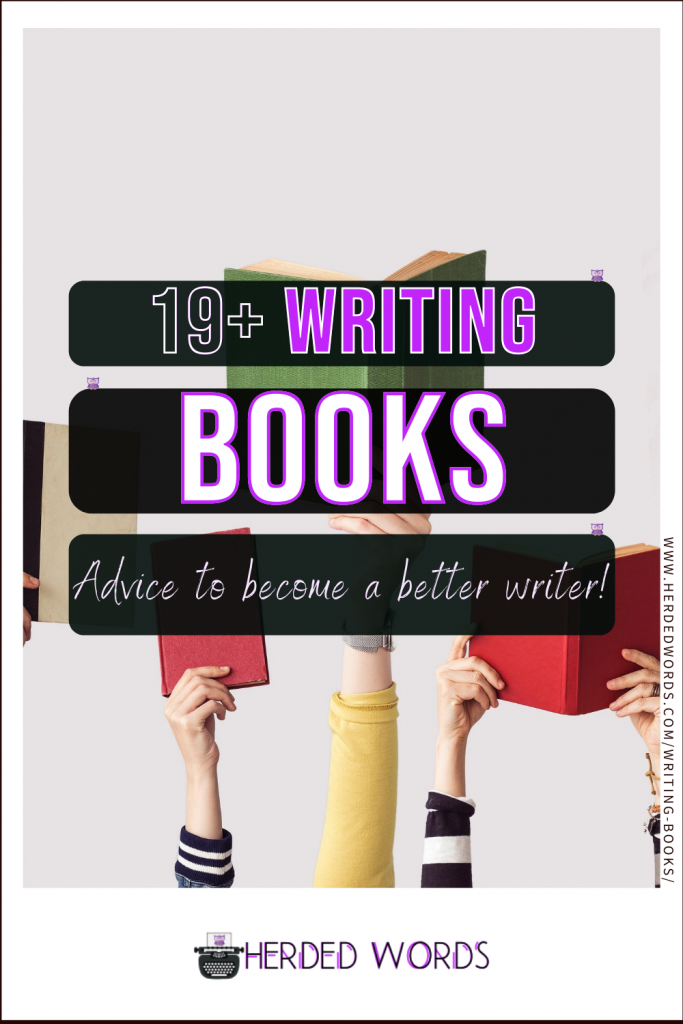
Reading fiction is part of being a fiction writer! You’re learning (or at least that’s what I tell myself at 3am when I should be sleeping).
Ready for more? Check out the complete review of Masterclass for Writers next!
Did I miss your favorite writing book? Let me know what it is in the comments below!
Like this post? Please PIN IT and follow me on social media. Thanks!
Happy Writing,
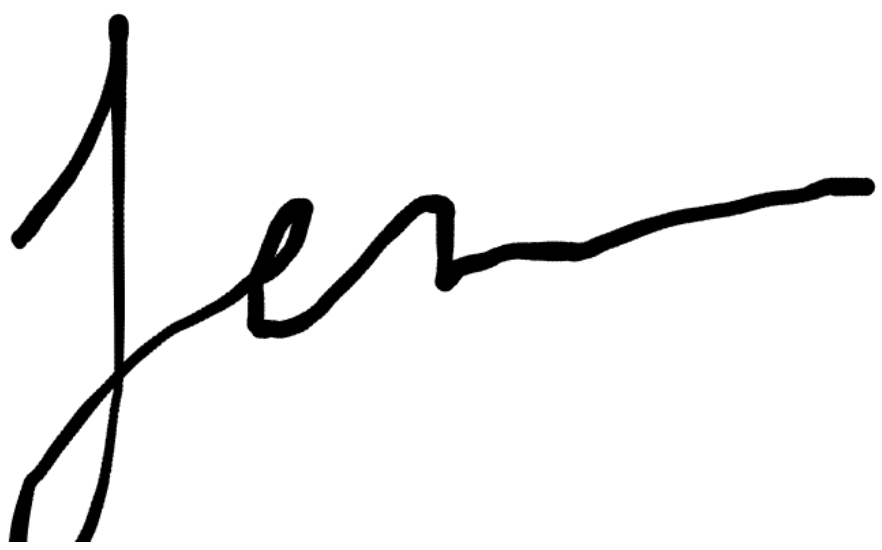
This post was proofread by Grammarly. Try it for free today.
